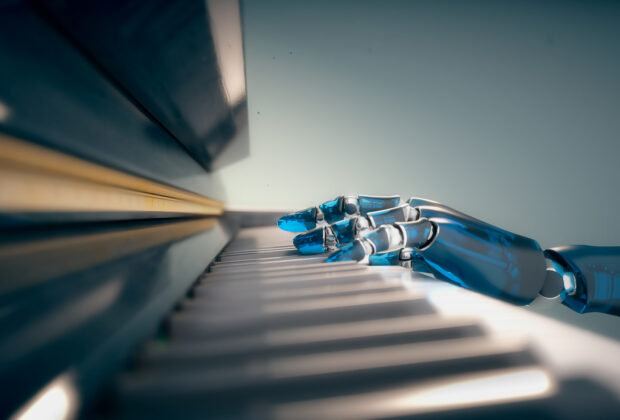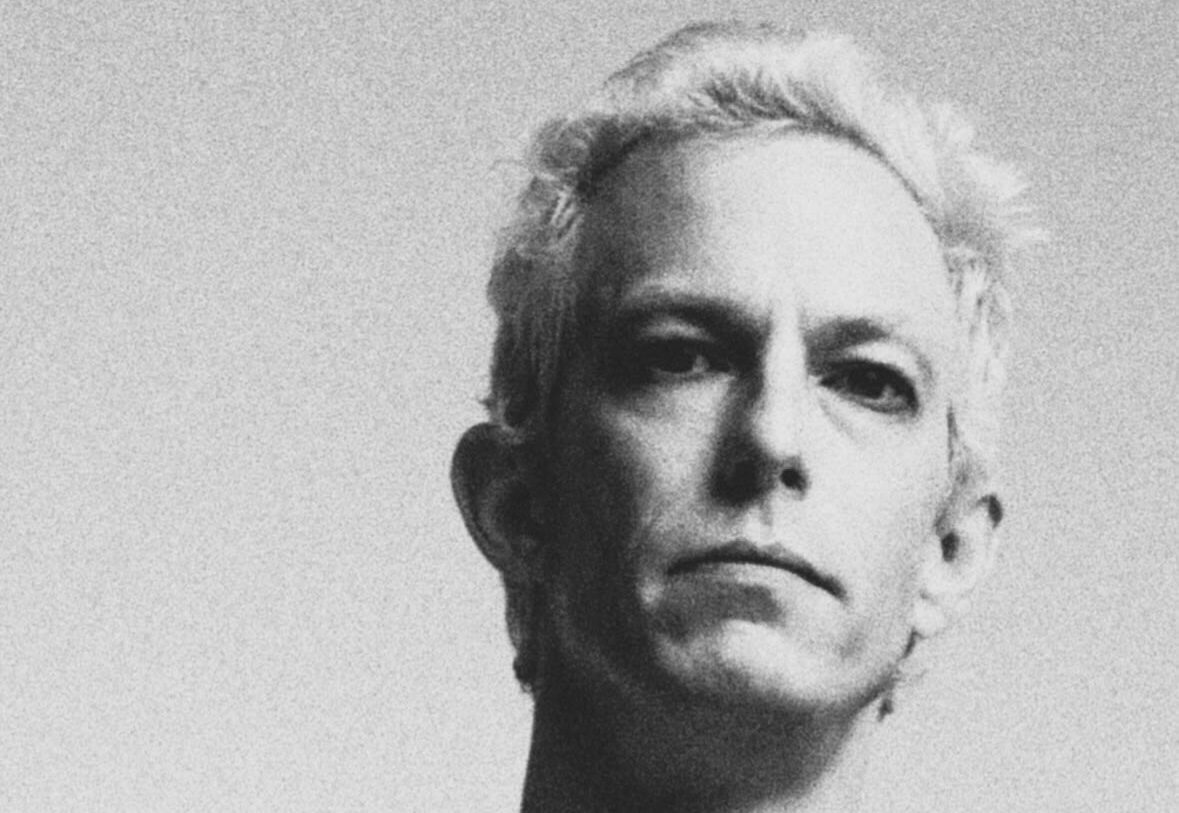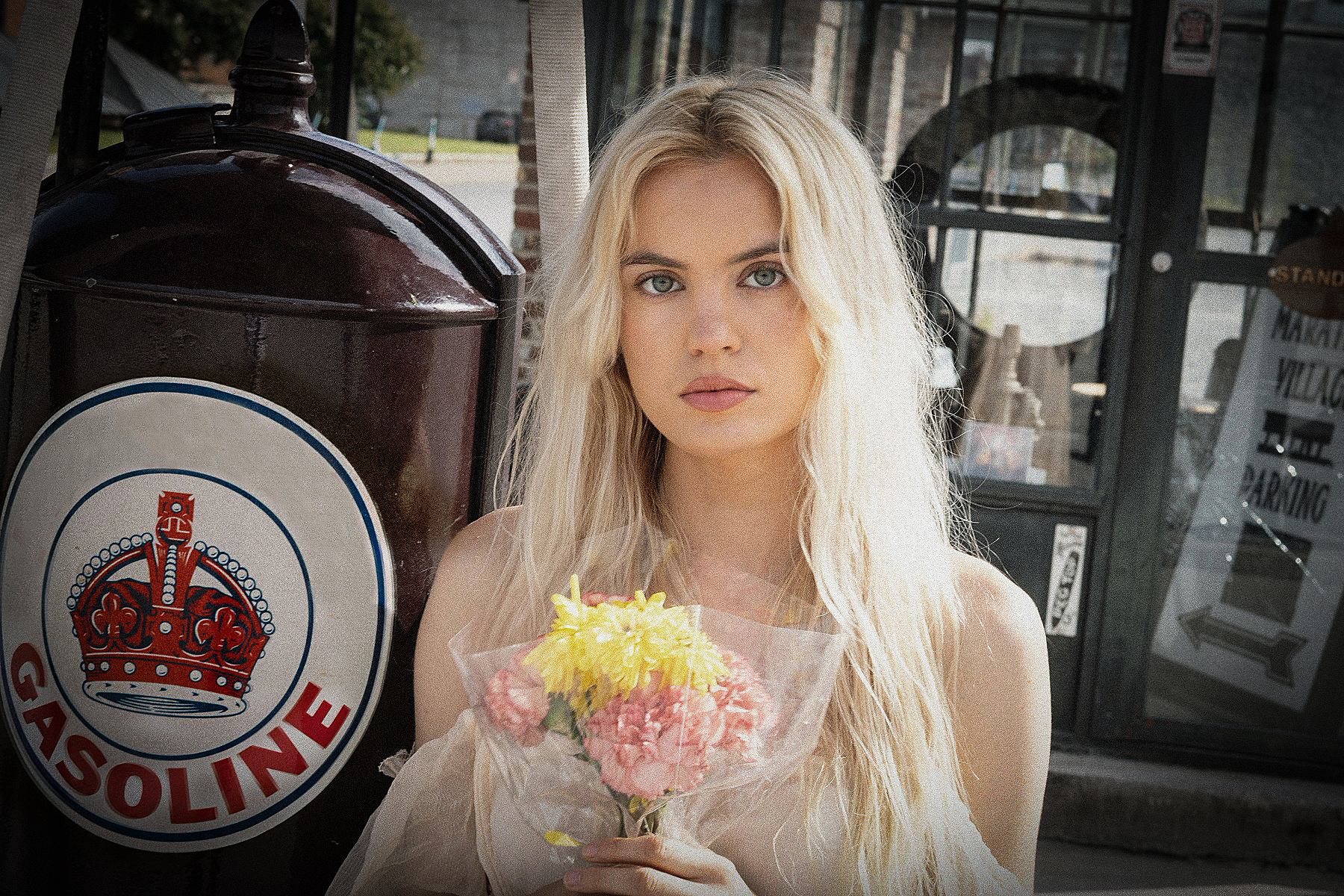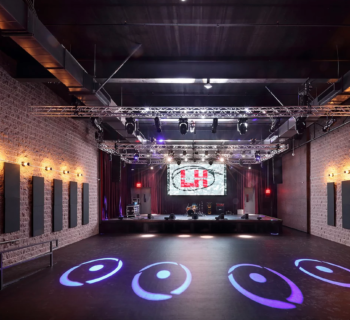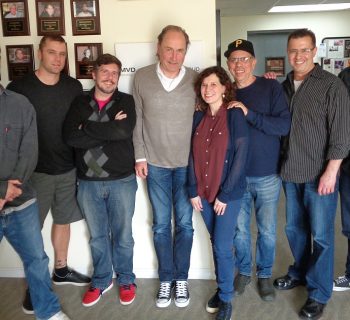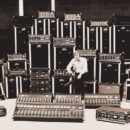Until recently, the idea that computers could replace humanity was little more than science fiction. Then, ChatGPT came along. So, too, did a song purportedly by Drake featuring The Weeknd. Although the track involved neither artist, it began charting. The threat of artificial intelligence making creative individuals obsolete suddenly became real.
Although computerized assistance in the music industry is nothing new, the rise of generative A.I. poses a new level of concern. What will happen as the technology continues to develop? MC spoke with five experts to analyze this burning topic.
Dr. Martin Clancy
Founder / Chair
IEEE Global A.I. Ethics Arts Committee
What does a future with artificial intelligence look like?
Things are happening quickly, so any predictions are nebulous. I teach and also work as a manager and artist. I got involved in A.I. because I noticed some of my students were responding to these technologies. I ended up doing a PhD on this subject. I wasn’t making predictions, yet what I researched is pretty much what has happened.
There’s a lot happening that has profound implications. And it’s also an opportunity for growth if the moment is seized. If not, we might be looking at a future not unlike what occurred during the Napster period. There’s a chance to use these tools in a fun but equitable way.
Do people have misconceptions about artificial intelligence and how it’s going to change music?
I imagined that a younger generation must be more hip to this than I am, but that doesn’t match with my experience. There’s a big mismatch between what is understood and what is happening.
Is there any way for creators to protect their likenesses and artistic voices?
Legally, copyright has to be created by humans to be granted copyright. It doesn’t mean nonhumans aren’t capable of creativity but that it won’t be granted copyright. We’re in a place where we have to come up with personality rights. “That protects my voice, doesn’t it?” Maybe.
The two cases that rocked the industry were Robin Thicke’s “Blurred Lines” and Katy Perry’s “Dark Horse.” Nothing to do with A.I., but they pushed the boundaries of what we thought was copyrightable or what could be argued. Now, when it comes to A.I., the question of whether you are infringing on my copyright becomes much more opaque and complex.
What adjustments should creative people make to accommodate A.I.?
Understand and try the technologies. Experiment and see what new things you can do.
The second part comes into the legality. Everybody’s looking toward legislation, because even with the best intentions there are unforeseeable consequences. It comes down to what we care about. The pandemic showed we care about the arts.
And build an economic model. I know that sounds lofty, but that’s what’s necessary.
How can music people use artificial intelligence?
Let’s take it from the musician’s point of view: 63 percent of musicians said they’re already using A.I. in some capacity. Most musicians use social media to market themselves. It’s a drag on their time. A.I. is a good way of alleviating that and creating more space for creative work. And musicians can use [A.I. programs] as new tools. Don’t read the instruction manuals; have fun with them.
From the major label side, there’s a lot to be positive about if a common appetite can be found. And I believe there can be. There’s a lot of fear, but when I start speaking about the possibility of a better future, everybody seems interested.
Do you think artificial intelligence will help artists become more creative?
It’s easy to see it as depressing and think, “What’s the point in my doing that when it can do it itself?” That’s too easy. I lean into the positive side.
Sam Dresser
Chief Innovation Officer
School of Rock
What does a future with artificial intelligence look like?
In the past, we’ve seen technological breakthroughs that people were scared of. The photograph didn’t replace painters; it just turned into another medium. A.I.’s going to play a similar role, but it is a little different in that generative A.I. is able to generate content on its own. So I think it’s going to have a profound impact.
I believe the overall impact is going to be positive. At School of Rock, we’re always thinking about how we can introduce music to new people. How can we make music approachable? We have been getting more serious about songwriting. How do you go from nothing to a finished song? A.I. can help demystify that process.
We’re going to see a lot of content fully generated by A.I. And there is going to be disruption and displacement in certain spaces. There may be a hit song that has a novelty to it because it was A.I.-generated, but what people love about music is authenticity.
Do people have misconceptions about artificial intelligence and how it’s going to change music?
You see misconceptions on both ends of the spectrum. The doom and gloom folks are likely overstating the impact. And those who think it’s a passing fad are likely understating the impact.
It’s hard to say exactly what this is going to look like. We know enough to recognize that it’s going to be transformative. We don’t know how it’s going to look down the road. I’m generally an optimist about it.
Is there any way for creators to protect their likenesses and artistic voices?
You’re going to see a lot of developments in that space. Some of it may be legislatively enforced. There are also startups that aim to protect creators. The big companies that have billions of dollars at stake are going to duke it out with legislators and tech companies. Hopefully, it benefits content creators as well. It’s an interesting discussion around imitation versus copying. Where is that line? There are court battles being settled all the time around this topic.
Right now, there’s not much artists can do aside from the things we know you need to do to protect yourself. Keep up as best you can on what’s happening and experiment with it. Because it’s not going anywhere, and the ones that’ll stay relevant are the ones that embrace it. I’m confident we can end up somewhere that feels fair to all parties.
What adjustments should creative people make to accommodate A.I.?
Do what we’ve always done—create content we think is compelling. Share our stories. What did we do when synthesizers came out? What did we do when Digital Audio Workstations became the norm and things like Pro Tools? What did we do with turntables and electric drum machines? Some found new music to create from that.
If it hooks you, then people are going to want to check it out. If it sounds interesting and has all the elements that make great music, they dig it. So make compelling stuff. And if [A.I.] is something that interests you, play around with it.
How can music people use artificial intelligence?
There are three buckets where A.I. can be helpful. One is personal assistance, like helping you be more organized, structuring your day, coordinating meetings or completing an email. Then there are assistant things, like planning a vacation.
And then there’s strategy. Things like, “Give me a few decision-making matrixes.” Or, “Tell me some KPIs that would mean success for this initiative.” Or, “Help me create a project plan.” Even, “Analyze this presentation and tell me if it contains the right content.”
The last [category] is what musicians care most about, which is A.I. as a content creator. We’re going to dip into each one of those at different times depending on the work being done.
Do you think artificial intelligence will help artists become more creative?
I think so. You’re always going to have those who are like, “I don’t want my creative vision influenced by A.I.” I respect that. But imagine somebody recording a melody into their phone, feeding it into an app and saying, “Turn this into a song in this style.” People are going to use A.I. to spark ideas quickly and easily. It will be used to help people be more creative. At the end of the day, the people with the most compelling visions will still win out, because they’re the ones that are going to curate what’s good and will resonate.
Ashley Irwin
President
Society of Composers & Lyricists
What does a future with artificial intelligence look like?
People who don’t adapt will fade away. Those who are forced to adapt may find their work takes on a different look. While it may replace jobs in certain areas, there are always going to be people who need to feed the machine, if you like. So maybe that becomes a new job. Art is a reflection of a moment in time, and I don’t think machines can respond to what’s happening in society. So that’s where there will be jobs.
One of the things from any new technology is the speed factor. When I started, if you wanted to re-edit a movie the editor would undo all the splices and put it back a different way. Now that it’s digital, it’s a keystroke. While that’s convenient, the people we work for realize it takes us less time. Therefore, we’re always being pushed in terms of delivery times.
Do people have misconceptions about artificial intelligence and how it’s going to change music?
The misconception is that everything’s going to be good. One of the reasons we as composers and songwriters are employed is because of our taste. We are the arbiters. I don’t know that a generative A.I. machine has the ability to reject bad ideas. To them, it’s an output. So, who becomes the arbiter? Who’s going to decide what is and isn’t good?
Is there any way for creators to protect their likenesses and artistic voices?
That’s the big question. The labels are trying to get a federally mandated law where it’s consistent across the country. But it’s different from state-to-state at the moment.
One of the big fears is that, regardless of what we do in the U.S., there are going to be bad actors around the world. Just like there are offshore tax havens, there may be copyright-free places where you can create whatever you like. As it is, there are certain territories where they’re not enforcing anything. So from that aspect, I don’t know how you are going to protect copyright. We’re doing a lot of work with the copyright office to determine what should happen.
What adjustments should creative people make to accommodate A.I.?
We’re encouraging [the SCL’s] members to put a clause into their contracts that requires not using commissioned work for generative A.I. purposes without consent.
How can music people use artificial intelligence?
There’s a lot of stuff you have to do to keep track of metadata. A lot of that can be done with artificial intelligence. Or if you’re doing a television show and have a bunch of themes or want to get over writer’s block, you can generatively use your material to create variations that you might not otherwise have come up with.
Do you think artificial intelligence will help artists become more creative?
Possibly. I remember this discussion when Sgt. Pepper’s was released and The Beatles started doing multi-track and all that. You sort of go, “What would’ve happened if Mozart had been able to play around in a recording studio?” People are going to find ways to use this technology that we don’t even know about and come up with interesting things. Not all of them will be listenable. But the good ones will be good and the arbiters of taste will decide which those are.
Anshay Saboo
Head of Product
Drumify, a subsidiary of LiveOne
What does a future with artificial intelligence look like?
Over the past year, we’ve seen A.I. break into many industries, but we’re on the cusp of A.I.-generated music. The entire integrity of the art comes into question. Some people are with it; some are against it. Universal [Music] is encouraging it and using that as another revenue stream. The future is going to come down to how we can make A.I. equitable.
At Drumify, we’ve been building features that allow producers to have a vision of the song they want to make and use A.I. to bring that to life through enhanced sound discovery and A.I.-based suggestion. Right now, we’re in that phase of growing pains any time a groundbreaking technology is made available. As we figure out what works, it’ll have a positive impact.
Do people have misconceptions about artificial intelligence and how it’s going to change music?
One misconception is that it is going to be the downfall of creativity. On the opposite end, it makes it easier than ever for people making music to elevate their work. Now, you can do it in a matter of hours. So while there are caveats, it has the potential to become one of the biggest creative jumps in history.
Is there any way for creators to protect their likenesses and artistic voices?
The industry is working on how creators whose voices are being used in A.I. productions will be paid and how the copyright and royalty system will work. At Drumify, we’re half music publishing company and half technology company, so we do a lot of work ensuring that producers of samples and beats are protected. And that, if they end up being used, they’re paid. Broadening that idea to A.I. is a conversation the industry needs to have. In the end, it’s better to embrace this wave than trying to crush it.
What adjustments should creative people make to accommodate A.I.?
If you think we’re going to go back to normal, that’s never going to happen. So the best adjustment is to educate yourself and explore all the opportunities and tools.
It’s not a one-size-fits-all thing. Just because you are in the industry doesn’t mean you need to start working on A.I.-generated vocals or beats. But figure out how you can use those applications to optimize your workflow and creativity.
How can music people use artificial intelligence?
There are many A.I. tools that create musical ideas or even take music that’s played on one instrument and transform it into another. On the corporate side, there are tools that make it easier than ever to draw up legal contracts.
Do you think artificial intelligence will help artists become more creative?
Not necessarily. It depends on what a musician’s creative process is. This wave of A.I.-generated music might not be for everyone, but it’s definitely something that’s worth exploring. Maybe a generative A.I. tool could help you break through and discover new sounds.
Rachel Stilwell
Stilwell Law
What does a future with artificial intelligence look like?
It’s hard to predict. But music creators should be able to use A.I. to go beyond what they normally would. And that’s exciting.
On the other hand, music is copyrightable, both the musical composition and the sound recording. We need to be careful about protecting songwriters and recording artists from misappropriation of their work.
Do people have misconceptions about artificial intelligence and how it’s going to change music?
People have suspicions about how it will go, but we aren’t going to know until we have it being used day in and day out. People say things like, “Information wants to be free.” And they apply that to music. What they mean is there should be no copyrights.
There are also those that say, “We need to be careful about people scraping performances, songwriting and recordings, without consent.” I feel strongly that, if you’re going to use somebody’s work to train A.I., you need the consent of the person whose work you’re copying.
Is there any way for creators to protect their likenesses and artistic voices?
Recording artists don’t always own their masters. If you don’t own your masters, what do you do if somebody is scraping your performances? Under those circumstances, you can’t sue.
Not every state has a right of publicity statute, but California, New York and Nevada do. Those laws protect against misappropriation of name, likeness, voice and sometimes signature. A vocalist might be able to sue to get something taken down. There is a recently introduced federal right of publicity statute called the NO FAKES Act that would federalize this right of publicity. That would be a good thing for vocalists and actors, because it’s not limited to music.
Right now, this particular statute has a few exceptions that are too broad; it would allow a user to borrow for parody or satire. If the NO FAKES Act is amended to remove these exceptions or make them narrower, that would be a good thing.
What adjustments should creative people make to accommodate A.I.?
The burden is on the laws. There are copyright protections in place, but they’re not enough. We need a federal right of publicity statute. And if it takes a while to get, then those states that don’t have right of publicity statutes should enact one.
Beyond that, we need to amend the federal anti-bootlegging statute to cover studio recordings and provide another tool to protect against misappropriation of recorded performances. It’s the job of those in law and policy to address the potential for misuse and not put the burden on musicians to chase down every misappropriation of their work.
How can music people use artificial intelligence?
I don’t think A.I. should be doing the work of the artist. But if you need a tool to help edit the thing you have created, A.I. sounds great.
Do you think artificial intelligence will help artists become more creative?
There’s a reason why I’m a lawyer instead of a guitar player. I’ve got a really good left brain. I have things to say about protecting creators. I’m good at that. •

